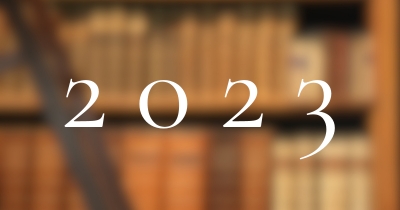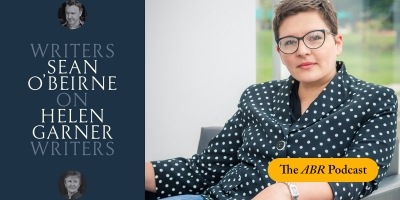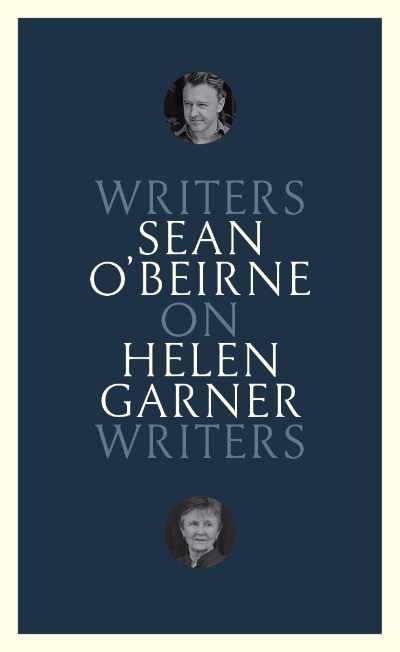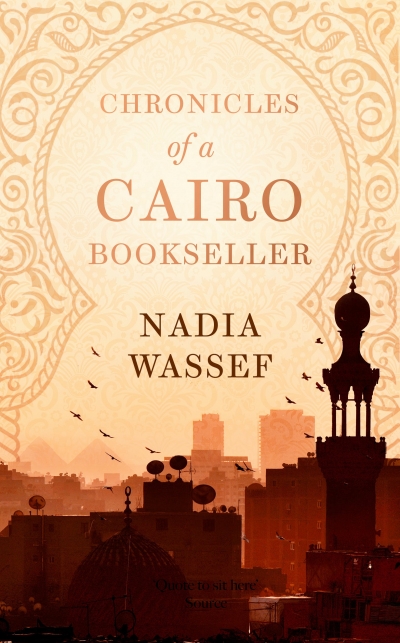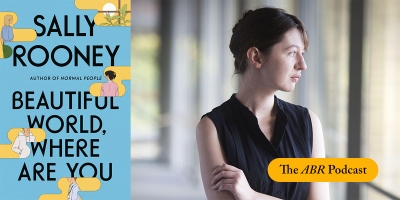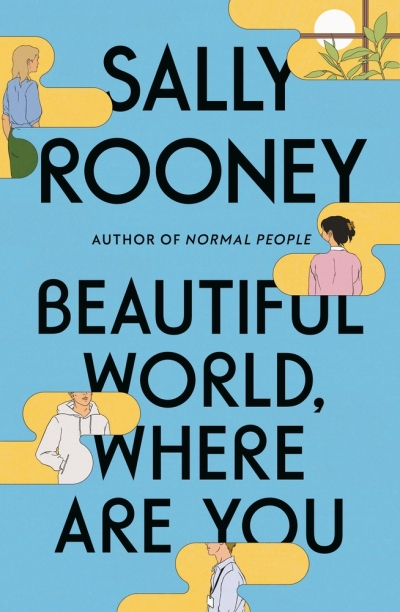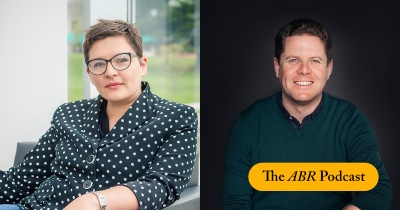Accessibility Tools
- Content scaling 100%
- Font size 100%
- Line height 100%
- Letter spacing 100%
Beejay Silcox
The ABR Podcast
Released every Thursday, the ABR podcast features our finest reviews, poetry, fiction, interviews, and commentary.
Subscribe via iTunes, Stitcher, Google, or Spotify, or search for ‘The ABR Podcast’ on your favourite podcast app.
‘Where is Nancy?’ Paradoxes in the pursuit of freedom
by Marilyn Lake
This week on The ABR Podcast, Marilyn Lake reviews The Art of Power: My story as America’s first woman Speaker of the House by Nancy Pelosi. The Art of Power, explains Lake, tells how Pelosi, ‘a mother of five and a housewife from California’, became the first woman Speaker of the United States House of Representatives. Marilyn Lake is a Professorial Fellow at the University of Melbourne. Listen to Marilyn Lake’s ‘Where is Nancy?’ Paradoxes in the pursuit of freedom’, published in the November issue of ABR.
Recent episodes:
What the authors of these three wildly different books share is a gift for creating through language a kind of intimacy of presence, as though they were in the room with you. Emily Wilson’s much-awaited translation of The Iliad (W.W. Norton & Company) is a gorgeous, hefty hardback with substantial authorial commentary that manages to be both scholarly and engaging. The poem is translated into effortless-looking blank verse that reads like music. The Running Grave (Sphere) by Robert Galbraith (aka J.K. Rowling), the seventh novel in the Cormoran Strike crime series and one of the best so far, features Rowling’s gift for the creation of memorable characters and a cracking plot about a toxic religious cult. Charlotte Wood’s Stone Yard Devotional (Allen & Unwin, reviewed in this issue of ABR) lingers in the reader’s mind, with the haunting grammar of its title, the restrained artistry of its structure, and the elusive way that it explores modes of memory, grief, and regret.
... (read more)This week on the ABR Podcast we revisit a shortlisted story from the 2016 ABR Elizabeth Jolley Short Story Prize: ‘Slut Trouble’ by Beejay Silcox. The provocatively titled story was republished in The Best Australian Stories 2017. Beejay is an ABR critic and the newly minted director of the Canberra Writers Festival. Listen to her read ‘Slut Trouble’, commended in the 2016 Jolley Prize.
... (read more)This week’s episode of the ABR podcast is devoted to the Books of the Year. With ABR Editor Peter Rose, critic and writer Beejay Silcox and historian Frank Bongiorno discuss the books that stirred them most in 2022. This follows a Books of the Year feature in the December issue of ABR, with contributions from thirty-six writers and critics. Listen to Peter Rose, Beejay Silcox and Frank Bongiorno discuss the best books of 2022.
... (read more)The Writers on Writers series aims to tease some of Australia’s literary treasures out of the Aladdin’s cave of canonicity. A collaboration between publisher Black Inc., the University of Melbourne, and the State Library of Victoria, it began in 2017 with Alice Pung’s book on John Marsden and Erik Jensen’s on Kate Jennings. The series now boasts eleven titles, the most recent of which is Sean O’Beirne’s book on Helen Garner ...
... (read more)‘I would like to write about dominance, revulsion, separation, the horrible struggles between people who love each other,’ wrote Helen Garner, foreshadowing How to End a Story, the final instalment of her published diaries, following Yellow Notebook (2019) and One Day I’ll Remember This (2020). While the first two volumes spanned eight years apiece, How to End a Story spans only three. Starting in 1995, shortly after shortly after the release of Garner’s The First Stone, it details the dissolution of her marriage to another writer, V. As Lisa Gorton notes, this volume differs from its precursors both in tone and focus: ‘This one is as compelling as a detective story. This one is edited with the sense of an ending.’
... (read more)It’s difficult to imagine a more hotly anticipated novel than Irish author Sally Rooney’s Beautiful World, Where Are You. Fiercely embargoed advance copies have sold for vast sums on eBay, and British publisher Faber even set up a custom Sally Rooney store – featuring branded bucket hats, tote bags, and a coffee truck. The author’s two prior works, Conversations with Friends and Normal People, garnered critical acclaim for their insights into young love in the modern age, with pundits even declaring her ‘the first great Millennial novelist’. ABR critic Beejay Silcox delves into Rooney’s latest work for our October issue, available to read tomorrow, September 30. In today’s episode, Beejay first discusses the entangled process of critiquing Beautiful World, Where Are You, before reading her review in full.
... (read more)On 4 August 2020, Theodore Ell was living in Beirut, Lebanon, when an explosion erupted at the local port, killing more than 200 people and injuring more than 7,500. Ell and his wife, a diplomat, survived, but were badly shaken. At the encouragement of his close friend Beejay Silcox, Ell turned his experience into the essay ‘Façades of Lebanon’, a harrowing, intimate piece of reportage, and the deserving winner of the 2021 Calibre Essay Prize. In today’s episode, listen to Ell in conversation with Silcox about the inception of his prize-winning work, the balancing act of writing trauma and place, the historical complexities of Beirut, and more.
... (read more)

